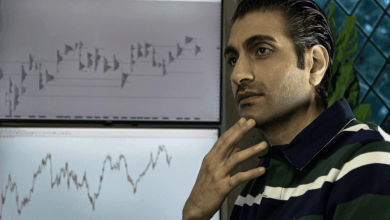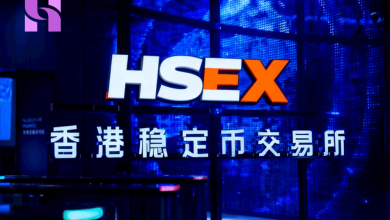A Practical Money Guide for Global Tech Workers: FX, Bullion, and Crypto (Canada & US Edition)

Whether you’re a developer relocating for a contract, a founder opening a North American branch, or a student starting an internship, your financial setup can either save you money—or quietly burn it. Here’s an objective, step-by-step playbook for managing foreign exchange, precious metals, and crypto across Canada and the United States.
1) Foreign Exchange: Control the Spread, Not Just the Fees
If your base of operations includes Ontario—Toronto, Waterloo, Ottawa—compare total cost (rate plus fees) across banks, apps, and local specialists. Airport kiosks and ad-hoc ATMs are usually the most expensive options.
- For walk-in cash and competitive retail rates, price out currency exchange in ontario and check whether they offer rate holds or pre-order pickup.
- Avoid dynamic currency conversion (DCC). Always settle in the local currency (CAD in Canada, USD in the US).
- If using multi-currency cards, verify ATM partner networks, daily withdrawal caps, and weekend markups (some providers widen spreads on weekends).
- Hedge timing risk: if you’re moving a large sum, split transfers into tranches to average your rate.
Checklist
- Estimate your first 72 hours of cash needs.
- Save every FX receipt to track your effective rate.
- Test your card with a small transaction on arrival before relying on it for bigger purchases.
2) Precious Metals: A Logistics Project with Clear Rules
Gold and silver can be a small hedge against currency volatility—but outcomes depend more on premiums, storage, and buy-back liquidity than on headlines.
- If you’re in British Columbia, shortlisting reputable local dealers makes sense. Learn where and how to buy gold and silver in vancouver, compare coin vs. bar premiums, and confirm same-day settlement rules.
- Prefer documented buy-back policies (with quoted spreads) so you understand exit costs before you buy.
- Storage choices: home safe (access but insurance caveats), bank deposit box (limited hours), or insured third-party vaulting (fees but professional custody).
Operational tips
- Record bar/coin serials on purchase.
- Keep invoices and IDs in two places (encrypted cloud + paper).
- If shipping, confirm declared value limits and insurance terms.
3) US Angle: Ohio and Regional Access
If your travel or assignment places you in the Midwest, buying locally can simplify access and resale.
- Compare dealers where you can buy gold and silver in ohio. Ask about live premiums over spot, minimum order sizes, and payment method surcharges.
- Confirm state-level rules on sales taxes for specific products and thresholds.
- If you frequently cross the border, model where to hold metals (Canada vs. US) based on liquidity, access, and storage cost—not just purchase price.
4) Crypto: High Risk, High Governance
Crypto can be a “satellite” allocation in a diversified plan if you treat it as an engineering problem: key management, policy, and process.
- For structured guidance on custody models (self-custody vs. institutional), cold-storage workflows, key ceremonies, and recovery plans, consider crypto investment consultants.
- Use hardware wallets for long-term holdings; separate “travel devices” from cold storage.
- Apply hardware-based 2FA, unique passphrases, and version-controlled backups of critical procedures.
- Audit your on/off-ramps: test small withdrawals early, document every transaction ID, and store statements for tax reporting.
Risk rules
- Position sizes should survive extreme drawdowns without forced selling.
- Prefer exchanges with strong transparency; avoid long-term storage on hot wallets.
- Rehearse an incident plan (lost phone, compromised email, exchange downtime).
5) Documentation: Your Quiet Advantage
Cross-border life means more paperwork—but good records save money and time.
- FX: keep receipts, timestamps, and local-to-home currency conversions.
- Metals: store invoices, serial numbers, photos, and storage contracts.
- Crypto: export statements quarterly; keep wallet addresses and signed messages where relevant.
- Taxes: if your residency or income sources are complex, book a short consult with a cross-border specialist; it’s cheaper than fixing mistakes later.
6) Practical Scenarios
- A) Ontario + BC business trip (10–14 days)
- Pre-order CAD with a competitive currency exchange in ontario provider; pick up on arrival.
- Use a no-FX-fee card for hotels and transport; decline DCC at terminals.
- Curious about metals? Window-shop spreads and logistics to buy gold and silver in vancouver; compare to your home market before acting.
- B) Six-month US assignment (Ohio base)
- Open a US checking account if permitted to reduce repeated FX conversions.
- If adding a metal hedge, compare local liquidity and buy-back terms to buy gold and silver in ohio.
- Maintain a transaction log with dates, amounts, and USD/GBP/CAD values for tax season.
- C) Remote worker between Toronto and US hubs
- Combine a multi-currency account for everyday spend with a modest cash float.
- Set a crypto security policy with crypto investment consultants—keys, recovery, travel device hygiene.
- For bullion storage, model annual vault fees vs. access needs; avoid mixing investment and collectible purchases unless you understand the tax implications.
7) Common Pitfalls to Avoid
- Using airport kiosks for large FX amounts
- Forgetting to disable DCC (pay in local currency)
- Buying metals without verifying exit spreads and ID requirements
- Keeping seed phrases in cloud notes or email
- Relying on memory instead of receipts and transaction logs
Bottom Line
Think like an operator: pick transparent FX channels, treat bullion as logistics with clear exit terms, and run crypto with production-grade security. The goal isn’t to “time the market,” but to reduce friction, remove single points of failure, and document everything—so your money works as hard as you do.
Disclaimer: This article is for information only and does not constitute financial, tax, or investment advice. Do your own research and consult qualified professionals where appropriate.

Source: A Practical Money Guide for Global Tech Workers: FX, Bullion, and Crypto (Canada & US Edition)




